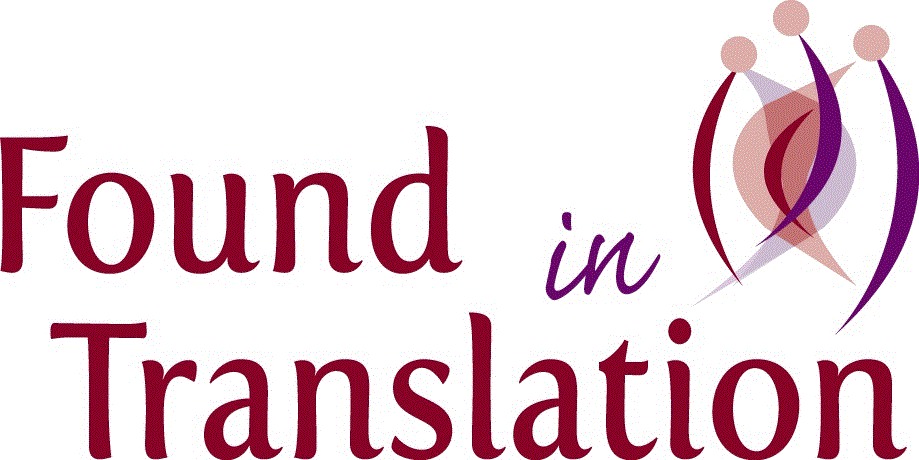Reckoning With Our Silence
Our hearts are broken.
So many Black lives lost to state violence in short succession is an occurrence as shocking as it is familiar, as unfathomable as it is routine. The recent murders left us shaken to the core. The Found in Translation team is grieving and exhausted and on fire and numb. We are mobilized and learning and teaching and fed up. We are struggling to fall asleep at night and to get out of bed in the morning. We are Black and Asian and white and Latinx, and we are united in one voice:
Not one more. Black lives matter.
Looking in the mirror.
Last week we (still virtually) gathered as a team to get grounded in the present moment and talk about how we can support our program participants and each other, and how we would like to see our organization respond publicly. In this meeting I was asked one of the toughest questions I’ve ever been asked: “What took us so long?” As an organization founded in response to injustice, we cannot be silent while Black people beg to breathe. And yet we have been silent. For a very long time. The failure is mine as a leader. In taking a hard look at myself, I’ve come to own that we must take a stance as an organization, publicly and visibly. And I am sharing my reflections on the factors that contributed to our silence, with two goals in mind:
- To start a conversation with funders and nonprofit leaders about the silencing forces in our sector.
- To add another voice to the complicated conversation about racism in and by immigrant communities, a subject that is too often dodged.
First, I will be clear on where we stand:
The killing of Ahmaud Arbery was a lynching. George Floyd was murdered in cold blood by a police officer slowly choking him with a knee on his neck while he pleaded for his life. Breonna Taylor was at home, in her own bed, when police broke into the wrong home, looking for a suspect who was already in custody, and shot at her more than 20 times. Police not only killed Tony McDade, but continued violence against him even after his death, by misgendering him.
Killings by police are extrajudicial executions and are indefensible, period. That these killings are disproportionately carried out against Black and Native people is deplorable. Black lives matter. This includes disabled, queer, and trans Black lives. This includes Black people who did not win awards and who do not fit the myth of the “perfect victim.” We reject any attempt at justification of the state-sanctioned brutality against marginalized communities.
The lack of accountability for the violence is appalling. It took almost a week to arrest George Floyd’s killer, despite the murder being on video. It took 2.5 months to arrest Ahmaud Arbery’s murderers, one of them a former police officer. At the time of writing this, nearly 3 months after Breonna Taylor’s death, her killers still have not been charged. The name of the officer who killed Tony McDade is being withheld from the public because we give killers in blue a level of protection their victims never had.
We unequivocally support the protesters and all who are rising up against injustice. We condemn the soft-served racism of derailing the conversation to looting, as well as any criticism of how an oppressed people resists oppression. As an organization in the healthcare space, we recognize that racism is no less deadly than the coronavirus. I am proud that several of our staff participated in demonstrations in Boston and our respective communities, and we vow to continue to show up.
We are horrified, though not entirely surprised, at police breaking out in violence across the nation, launching unprovoked attacks not only at demonstrators, but also targeting journalists, legal observers, and medical personnel. We reject the notion of “a few bad apples” and assert that the US police force is a fundamentally, irredeemably, irreformably racist and corrupt institution. Reform measures have not worked. We support abolitionist measures—starting with defunding police and diverting taxpayer dollars to better uses that actually serve and actually protect. We applaud the Minneapolis City Council for moving to disband its police force. We hope to see the whole country follow suit, including right here at home in Boston, where the police budget is 2.7x larger than the combined 9 departments of health & human services. This is a start. But what I would really like to see is truth and reconciliation, and reparations.
Our next steps:
At Found in Translation, our immediate response has been focused on caring for each other and the women we serve, recognizing that this is a time of collective trauma and heightened stress. We have made extra PTO available for staff to take either as days off for mourning, rest, and being with loved ones, or as “days on” to take action, effect change, and play our part in creating a more just society. As a team, we are holding up the mirror to examine where we have fallen short, and how we can become explicitly anti-racist in everything we do. A team approach to this is especially important to me as a white leader of a diverse team serving an even more diverse community. I invite you to join us on our journey by reading Silence in the Social Sector and Dear Immigrants: Let’s Talk About Race.
(If you are a slow reader, the time it took you to read this is approximately how long a police officer knelt on George Floyd’s neck. If you are an average-speed reader, there’s still a couple minutes left.)
Maria Vertkin
Founder and Executive Director
[email protected]

